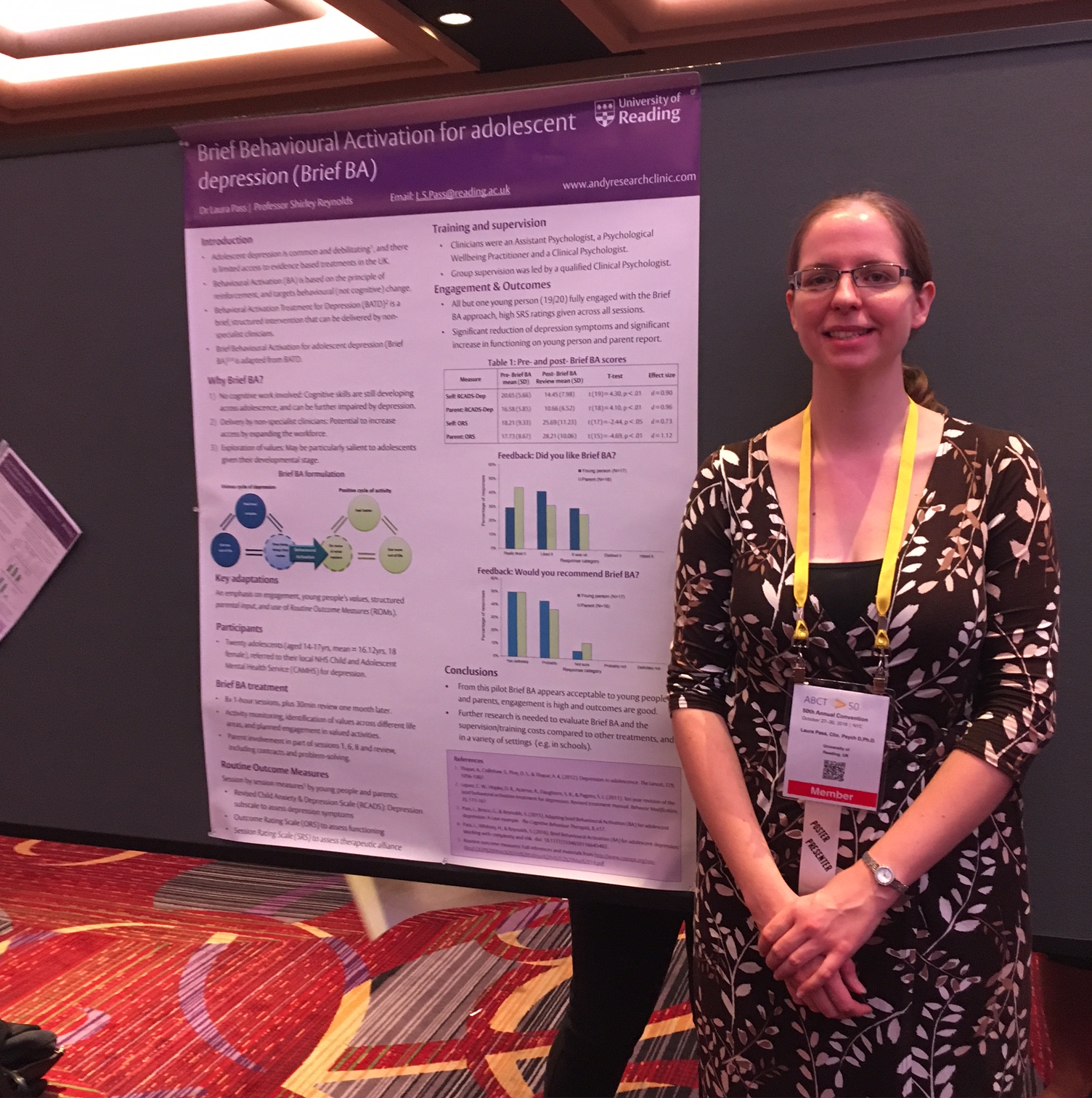‘Improving mental health in schools – what does the research tell us?’
By Lucas Shelemy, PhD student
On Tuesday 12th September 2017, the AnDY Research Clinic together with the School of Psychology and Clinical Language Sciences held a national conference discussing mental health in schools. The event was a mixture of brand-new research, practical strategies and eye-opening personal stories.
The most powerful moments of the day were the speeches from four Young Champions representing Time To Change, a charity that aims to reduce the stigma around mental health. These brilliant speakers; Jack, Abbie, Jessica and Mary each gave their stories about their experiences when in school as well as providing advice for school staff and leads. The inclusion of young people throughout the day is representative of our work in AnDY, as we try and include the young voice in all the research and clinical work that we carry out. Having people with lived experience of mental health problems part of the event helped demonstrate that these problems were real, relevant and impacted on young people’s lives.
The day opened with Professor Shirley Reynolds of our own AnDY team discussing recent developments in school interventions. Shirley’s talk stressed the importance of the 5 pillars (relationships, healthy eating, sleep, purpose and activity) as being key to staying mentally healthy. This was demonstrated by a striking amount of incredible evidence that has come out of the AnDY team – notably Emily Green’s findings that young people with low mood are most likely to describe themselves as being ‘tired’. Similarly Sundus Khalid’s research on the effect of nutrition and blueberry flavanoids on positive affect was met with interest. Shirley finished her talk discussing the latest research on Behavioural Activation done in schools which aims to help young people find a sense of purpose from activities they enjoy.
Lord Layard was up next giving an ambitious presentation about the future roles of teachers and CAMHS services within schools. The remarkable cost-effectiveness of investing in young people’s mental health at an early age was the takeaway message for commissioners and school leads.
Professor Neil Humphrey gave an incredible snapshot of school mental health research and of the evidence exploring the detrimental effects of having CAMHS services cut. From a researcher standpoint, it was fascinating to hear that ‘not all RCTs are equal’. Neil implored researchers to create interventions that take what we already know and focus on more creative research designs that are actually sustainable and fit cultural differences that suit the school environment.
Dr Jess Deighton’s presentation expressed the need for schools to measure outcomes and to track the effectiveness of interventions. It was clear from the talk that schools need to ask the questions and examine the evidence behind interventions before allowing programs to be introduced. The Wellbeing Measurement Framework was presented as a reliable tool to be used by both researchers and schools.
It was encouraging to see qualitative data presented at the event, with Professor Mick Cooper showing a synthesized model of the role of the counsellor. The protocol of the exciting new ETHNOS trial was discussed, which aims to explore the effectiveness and cost implications of humanistic counselling in schools. Mick closed by emphased how more research should be looked into standardized counselling for different client groups and ages.
The day finished with Dr Pooky Knightsmith summarizing the previous talks and describing key practical ideas that schools can take away with them. It was incredible that she wrote all the slides throughout the day when listening to the talks! Her closing remarks asked schools to 1) do no harm 2) ask questions 3) tailor to fit 4) measure impact and 5) share what works and what doesn’t. This advice is reminiscent of the evidence-based focus of the day and the importance of placing young people and what works for them at the forefront of everything we do.
It was a tremendous success and we are grateful to the collaboration within and between the AnDY team and The Charlie Waller Memorial Trust. All the slides and research posters from the event are available online at andyresearchclinic.com.

